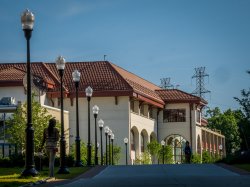Free Speech
Free speech, or Freedom of Speech, refers to the First Amendment of the United States Constitution that keeps the United States Congress from creating laws that prohibit free exercise of religion, freedom of speech, freedom of the press, freedom to assemble, or the right to petition the government about grievances.
While free speech includes the right to symbolic speech or even to not speak, it does not include language that is aimed at achieving results of violence or criminal acts and is likely to achieve it.
Learn more…view the following important web pages:
Human Relations Statement on Campus Climate for Civility and Human Dignity
Montclair State University recognizes its responsibility to foster an atmosphere of respect, understanding and good will among individuals and groups, with special sensitivity to those most likely to be subjected to disrespect, abuse and misunderstanding because of age, disability, ethnicity, gender, gender identity or expression, national origin, race, religion, and sexual orientation. The goal is to create an unbiased community where all individuals feel free to express themselves in ways that are appropriate in a multi-ethnic and multi-cultural society and to pursue their work and study in an atmosphere which values individuality and diversity.
Other Terminology
Bias Incident: A bias incident is conduct, speech or expression that is motivated by bias or prejudice but doesn’t involve a criminal act. Bias incidents may, however, violate campus codes or policies. Report Bias Incidents Here
Hate Crime: A hate crime is a criminal act (such as physical assault, intimidation, arson or vandalism) that is motivated by bias. Biases included in hate crime statutes may include race, ethnicity, religion, sexual orientation, gender and disability.
Faculty Resource
Student Resource
- What is a Bias Incident?
- Define Hate Crime
- What Does Free Speech Mean?
- Speech on Campus
- Campus Rights
- Freedom of Speech FAQ
- First Amendment Primers – free speech and social media, classroom walkouts and school protests, etc.
